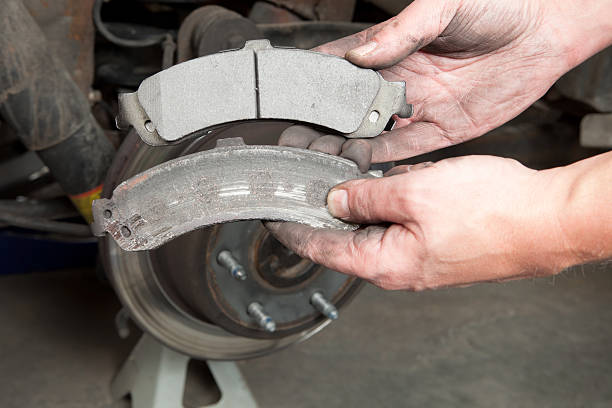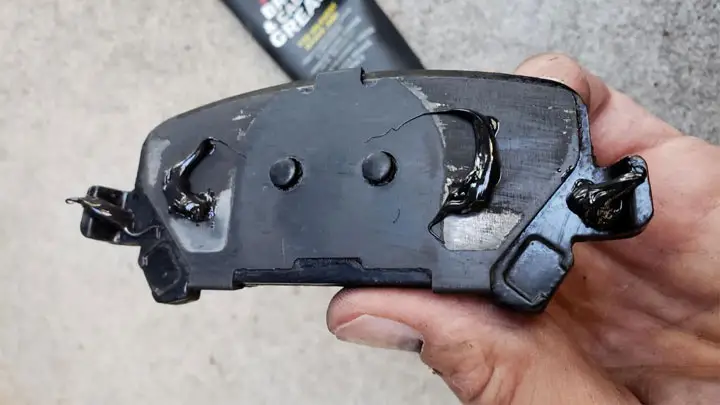Have you noticed any metal grinding noise when reversing and turning your car? This can be really annoying to deal with!
There can be a good number of reasons behind these weird noises.
So why are you hearing metal grinding noise when reversing and turning?
Lack of lubrication on the brake pads can create weird grinding noise. Issues with wear tabs on the brakes are the most common of all. Less lubrication on the break or metal lodge in the break or wheel can also cause noise.
So, let’s find out what are the easiest solutions we can get for all these problems.
Why Do Cars Make Metal Grinding Noise When Reversing/Turning?
Problems with the brakes are the most common reason for noise from the front wheel when reversing in your vehicle. The noise is loud, screeching as if metals are being ground by heavy machinery.
When shifting the gear stick to reverse, the car may shake and make a screaming noise.
Then again if you hear grinding noise when reversing and turning, it’s most likely the gearbox. This might be because the gearbox is unable to disengage completely. Which is from the engine while the gears continue to revolve.
Some people get around this by changing into forwarding gear before going into reverse. Doing so can actually fix the issue at times. Unfortunately, not everyone is always lucky enough to pull through.
If it doesn’t work, it means the clutch or gearbox is malfunctioning.
Which necessitates a trip to the mechanic. It’s conceivable that your gearbox will be replaced. This procedure can be costly, but it’ll pay off in the long run. A problem like slipping transmission during turning left also needs to be taken care of.
These problems aren’t as uncommon as you would think. It’s not as if you’re completely alone. So, let’s talk about these problems in detail.
Problem with Break Pad:
When reversing and turning, scraping brake pads against the rotor may generate noises. It’s possible that you’ll hear a clicking or screeching sound. If the brake pads are worn out, they might shift in a whole other direction.

It frequently occurs when the car hasn’t been properly maintained. Or when the brake calipers and pad surface have migrated significantly. As a result, when the brakes are replaced, there is a lot of noise.
The braking system also includes anti-rattle chips. As hinted by the name, the word’s objective is to stop rattling. If the brakes do not have this or have been removed, you will hear sounds.
Solution: Lubricant the Brakes
To stop the sounds, use a disc brake caliper lubricant to oil the brakes. If the noises persist, the faulty brake component must be replaced.
You might ask:
How much brake grease to use?
Well, in order to properly lubricate your brakes, you should use the minimum amount of lubricant. That is, just a thin layer of lube coating should do the trick to bring your brakes back to the action!
Throughout the replacement operation, make sure the anti-rattle clips are properly installed. Even though the brakes are new, improper installation will not solve the noise problem. And you will continue to hear the annoying sound.
While lubricating your breaks, it’s always important that you choose the best lubricants. That means that your lubricant should have a lasting impact and should bring out the best from your brakes!
We decided to go the extra mile and recommend some amazing brake lubricants for that! You can pick any one of them, use them, and get rid of the metal grinding noise very easily.
Here’s what we have to recommend:
| Product | Features | Price |
| Permatex 24125 Ceramic Extreme Brake Parts Lubricant | Resistant to moisture, Corrosion, and other contaminantsHigh lubricant integrity | Check Price |
| AGS SIL-Glyde Multi-Purpose Lubricating Compound | Long-lasting grease propertiesPerforms well from -20°F to 400°F | Check Price |
| CRC Brake Caliper Synthetic Grease | Prevent caliper corrosion and bindingPlastic and Rubber safe | Check Price |
These are great lubricants for your car’s brake. All you have to do now is pick according to your quantity and budget. And don’t forget to lubricant your brakes perfectly.
You should make sure to regularly lubricate your brakes once in a while to keep them in top shape. Many wonders:
What happens if you don’t grease brake pads?
Lack of lubrication makes the slide pins stiff and doesn’t slide the calipers properly. The brakes won’t contact the rotor properly, wearing down your brake pads. And it can also make the slide pin get stuck, resulting in the metal grinding noise.
So it’s best to always make sure your brake is well greased for driving!
Examining the Wear Tabs on the Brakes
On your automobile, the wear tabs are located towards the edge of the brake tabs. Its purpose is to ensure that the braking system is in perfect functioning order. So that when the brake pedals are applied, the vehicle comes to a full stop.
You’ll hear the sounds again when these tabs start to grind against the rotor. If you haven’t driven in a long time, this is the reason why. Car experts advise avoiding reversing or taking long trips in your vehicle.
Solution: Fix Wear Tabs
You should get it inspected or serviced before using it again. When attempting to reverse or turn, if the worn tabs are not correctly positioned. You might expect to hear noises then. The wear tabs must be properly examined and fixed.
Metal in the Braking System or in the Wheels
At times you can notice your breaking system making screeching noises when you are attempting to reverse. It generates screaming noises as metal scrapes against metal.
In such a case, there’s a possibility that a metallic object has most likely been stuck between the rotor and the brake pads.
Solution: Remove the Foreign Materials
Because of the stuck foreign materials, they are unable to function as efficiently as they should. If this occurs, have the rotor and pads thoroughly examined. And cleaned to verify that any foreign items are removed and the braking system functions normally again
Additionally, there might be metal trapped anywhere on the wheels that have to be removed. Because the metal is stuck in such a way that it does not obstruct normal movement. There may be no noise as you drive forward.
Examine for any additional harm that the metal may have caused. In addition to checking for it.
Grease Shim Lubrication Problem
Brake shims are located between the brake hoses and the brake pads. When the brakes are applied or when any of the other components come into contact with one another. Their major role is to keep the brakes quiet.
Solution: Proper Lubrication of Brake Shims
When these shims aren’t properly lubricated, sounds will most likely be heard when the car is reversing. As a result, you must lubricate the shims as often as required to keep the noise at bay.

To avoid wearing out the brake pads when working on them. The shims have two opposing surfaces that must be maintained. Excessive lubrication of the shims, on the other hand, may cause them to fail.
These are the most common reason for your cv joint noise when reversing and turning. You can also hear noise when speeding down which can also be fixed.
Frequently Asked Questions (FAQs)
Why Does it Sound Like Metal Scraping When I Turn Right?
Wearing or malfunctioning brake components problem can lead to screeching noise when turning right. Brake rotors that are unevenly worn or rusted, as well as worn or thin brake pads, can cause this. The dust shield has deteriorated and is now closer to the brake rotor. Wheel bearings that are loose, worn, broken, or rotting.
Can a CV Joint Make Grinding Noises?
Yes, the CV joint can make a grinding noise. The grinding will be audible and will happen at low speeds. If the CV Axle is worn down, usually when turning or halting. The axle component has worn out and is no longer articulating correctly, causing the axle to stiffen.
What Does it Sound Like When a Wheel Bearing Is Going Out?
A damaged wheel bearing produces cyclic chirping, screaming, and/or growling noises. The sound may change with the speed of the vehicle. You may be sure it’s related to the wheel bearings. With each revolution, the sound may become louder or fade away for a brief period.
Parting Words
Hope you got your answer to why your car is making metal grinding noise when reversing and turning. Follow the easy solutions provided along with the reasons to fix them by yourself!
Till then, keep safe!
- Is The Jeep Cherokee Frame or Unibody (Briefly Answered) - November 10, 2022
- Are Titan Wheel Spacers Good (The 360 Guidelines) - November 9, 2022
- FCW off Jeep (Is It Important for Your Car) - November 9, 2022

